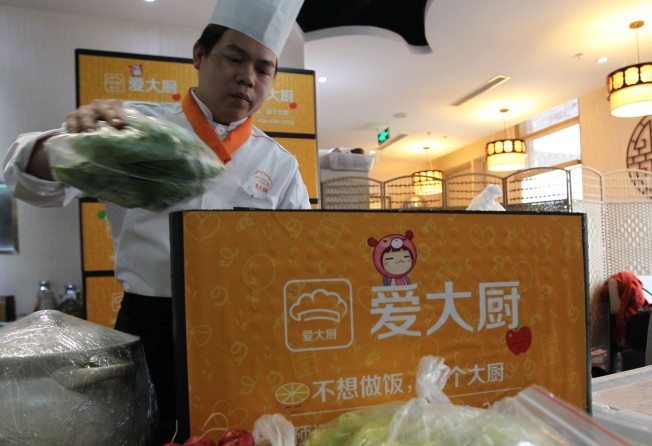
How the mobile internet is changing the way Chinese celebrate Spring Festival

There are many traditional holidays in China, but the Lunar New Year holiday, or Spring Festival as it is known locally, is top of the list in Chinese culture.
It is the time when hundreds of millions of working urban dwellers return home for get-together moments with their families.
To pull that off, hard-to-get train or plane tickets have to be booked at least one month in advance. Food, fruit, wine and candy are often prepared in advance by loving parents in order to give their children a once-a-year family feast.
But increasingly in the era of the mobile internet, in which app-enabled on-demand services such as Uber Technologies and Airbnb have changed people’s everyday life, celebrating the Spring Festival is becoming less traditional and more innovative by linking supply and demand in ways not possible before.
Here are some popular ways mainland Chinese are celebrating an “on-demand” Lunar New Year.

Days of shopping for ingredients, hours of preparation and toiling in the kitchen are so very 2008.
iDachu (愛大廚) has 1,000 professional chefs at the beck and call of a smartphone swipe, ready to cook up a storm on site in a customer’s home. Ingredients are purchased the day before the banquet so all the customer needs to do is focus on playing gracious host, sit back and enjoy.
A 16-course iDachu Spring Festival banquet for 10 people is priced between 1,888 yuan (HK$2,129) and 3,588 yuan. The service said it has received 3,000 orders weeks in advance.
“The service is getting increasing popular among middle-class families, especially those who have ageing parents and young kids,” said Chang Huan, the Beijing startup’s operations manager. “Our typical customers are busy with work or occupied with taking care of children, for whom dining out is not an option.”
The business model matches demand by people who aren’t kitchen-trained, with a ready supply of underpaid chefs around China.
Nie Ming, who earns 8,000 yuan a month at a Beijing restaurant, said part time work for iDachu has added on average 4,000 yuan to his monthly takings since he registered online two years ago.
This will be the second new year banquet that the 35-year-old Beijing native will be preparing, which means he will have to miss his own reunion dinner at home. As a chef, he finds satisfaction in cooking for other people, and the extra money is always nice to have, he said.

Didi Hitch (滴滴順風車), a carpooling service by China’s dominant ride-hailing platform Didi Chuxing, is the latest variation of smartphone-enabled applications that use big data analysis to match demand for rides with supply of vehicles.
The service is now the primary choice for getting around via inter-city transport, particularly handy when buses, coaches, taxis and trains are overwhelmed by the sheer volume of the planet’s largest mass migration.
Hitch may log as many as 8.4 million long-distance ride shares during the Lunar New Year rush, according to Huang Jieli, head of the service’s business unit.
The service is also a boon to socialising, helping people meet new friends on the way home.

As Chinese become wealthier, some of them are no longer satisfied by the conventional way of celebrating the Spring Festival at home. But it doesn’t mean that they don’t want a “home away from home” when a record-high number of trips are going to be made during the seven-day Lunar New Year holiday.
China’s National Tourism Administration predicated that the 2017 Spring Festival will see an estimated 343 million trips by Chinese who want to enjoy the holiday away from home.
As a surging number of families travel, demands for cooking facilities and space for kids to play are rising, making Airbnb-like services a popular business in China.
Xiaozhu (小豬), which sees itself as China’s Airbnb, enables travellers and home owners to list, search and rent vacation homes. Its bookings have more than doubled this year, compared with the same period last year, said vice president Pan Caifu.
More families are travelling with children younger than 18 years these days.
“They are expected to shift from hotels to private apartments because traditional hotels can’t meet their requirements such as warming of milk for toddlers, let alone cooking a decent meal,” he said.
Shenzhen-based Zhubaijia (住百家), which links Chinese outbound travellers with homes abroad, is tapping into the same demand by holding a big promotion ahead of the Spring Festival, during which six million Chinese are estimated to travel overseas.
“We have seen a significant growth in bookings especially in Australia and New Zealand, popular destinations for Chinese families,” said co-founder Zou Xin.